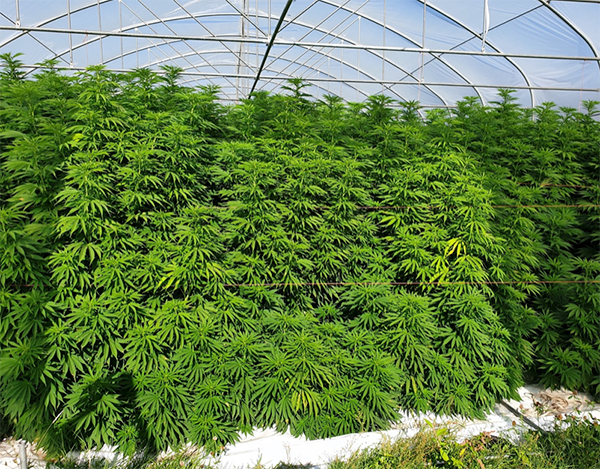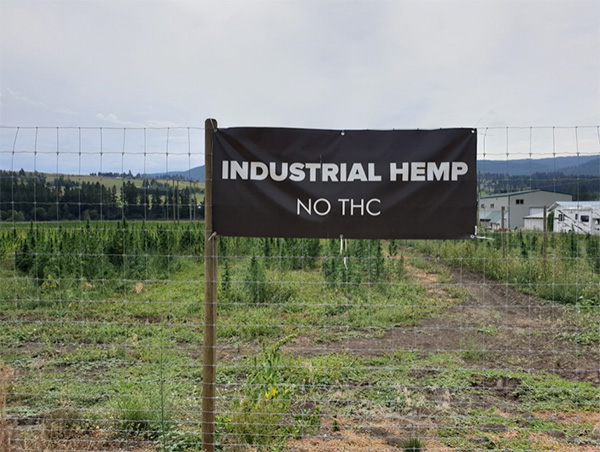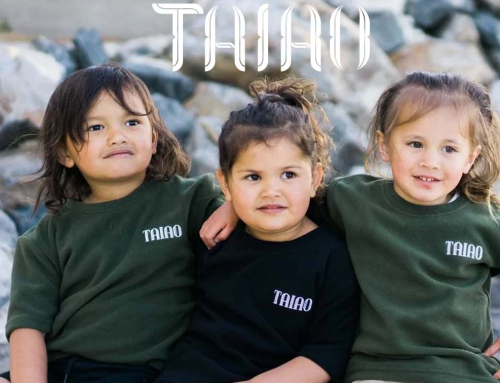U.S. hemp farmers are leaving Canada in the dust
Struggling American family farms are praising a cash crop worth more than US$45,000 per acre. According to projections by market research firm Brightfield Group, the hemp-derived CBD boom isn’t cropping up nearly as much attention in Canada.
“Hemp is going to be a saving grace for these small U.S. farmers. It really has been a game-changer for hundreds of American farms,” Brightfield managing director Bethany Gomez told Yahoo Finance Canada. “The growth on the Canadian side is much more linear in nature. There is not that dramatic shift that we have seen in the United States over the past year.”
In December 2018, the U.S. federal farm bill removed hemp from a controlled substance classification that lumped it in with heroin. At the same time, CBD, a non-intoxicating cannabis compound that can be extracted from hemp, exploded in popularity as a remedy for everything from sleep disorders in humans to anxiety in dogs.
Gomez sees the legislation as a winning policy helping to reinvigorate an agricultural sector struggling to make up for low commodity prices and lost exports to China. Beijing has used U.S. crops including wheat, soybeans and corn as economic pressure points amid the protracted trade war with Washington. According to Brightfield, China is now the number two hemp producer behind the United States. The buzz-less cannabis relative has yet to factor meaningfully into the spat between the pair of economic giants.
An estimated 285,000 acres of industrial hemp were planted in the U.S. in 2019, up from 78,000 acres in 2018. Brightfield expects about 87 per cent will be used for CBD processing this year.
Canada had 78,000 acres designated for hemp cultivation in 2018, according to the market research firm.
“This is down from nearly 140,000 acres in 2017,” researchers wrote in a recent study. “This decline is likely driven by increased competition from the U.S., China and Eastern Europe.”
They found on a per-acre level, hemp for CBD could yield sales of $45,203, compared to $235 per acre of wheat.
“It’s a very profitable alternative for farmers that are getting squeezed by a lot of other commodities,” Gomez said. “Hemp is a very high-risk, high-reward plant for farmers. That’s why it’s so attractive for them.”

Beyond the risk of growing a “hot crop” with too much THC, the chief psychoactive ingredient in cannabis, hemp for CBD extraction is labour intensive and requires expertise to grow successfully. The wholesale marketplace is also new, and companies have not always held up promises to buy harvests from farmers.
Few large players have entered the hemp cultivation space, opening up opportunities for small and family-run farms. Gomez said the fact that cultivation is spread across many growers helps mitigate the risk of farm-level issues like crop failures causing the sort of supply issues that plagued Canada’s recreational cannabis market at its onset.
“The Canadian recreational cannabis market has had a challenge with having supply meet demand. There are such a small number of players trying to operate at scale. Everything is consolidated,” she said. “If you have a very large number of small cultivators, some will have failures, but it will not have the same level of impact on the market overall.”
In Canada, hemp cultivation has largely taken a back seat to recreational cannabis following recreational legalization last October. The regulatory destination between psychoactive cannabis and hemp-derived CBD has not been as clearly defined as in the U.S.
“Because of the way the market is structured in Canada, there is not a difference between hemp-derived CBD and marijuana-derived CBD. They all have to move through the marijuana supply chain,” Gomez said. “In the United States, there is an absolute market for hemp specifically. It’s a big difference from industrial hemp, which is what has been cultivated mostly in Canada.”
Canadian farms, especially small family-run ones in a climate of increasing consolidation, could use a boost. According to Statistics Canada, realized net farm income fell 45.1 per cent in 2018, the largest drop since 2006.
Meanwhile, Canadian CBD companies are looking to the bigger U.S. market. Eureka93 (ERKA.CN)(LXLLF), for example, is cultivating 19,000 acres of hemp across 33 farms in Montana and operating extraction facilities in that state and New Mexico. Brightfield lists the company as the second-largest cultivator by acreage in the U.S. Last month, the company received a Health Canada licence for a single cultivation site in its hometown of Ottawa.







